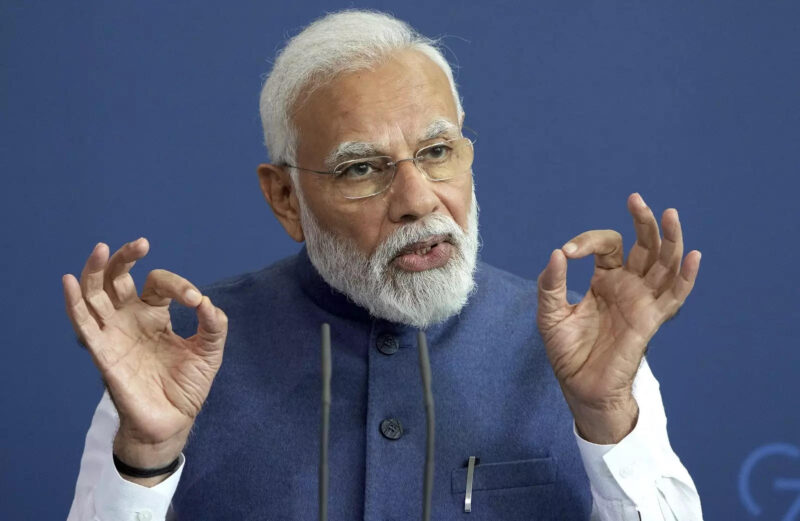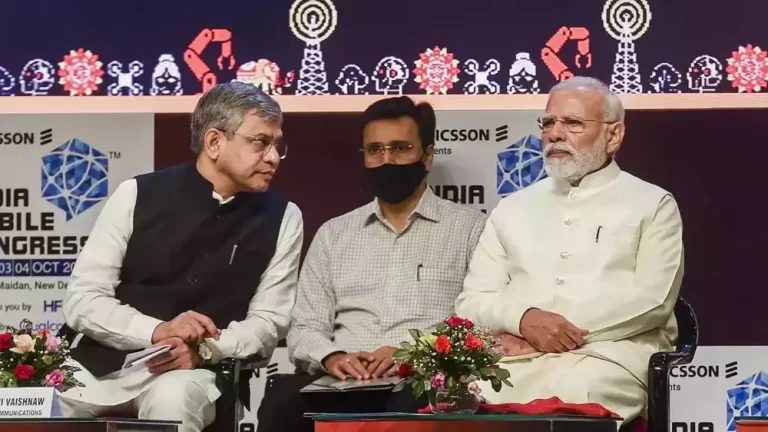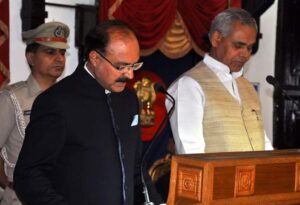rajkotupdates.news:pm-modi-india-plans-to-launch-5g-services-soon: India, the world’s second-most populous country and one of the fastest-growing economies, has taken a significant stride towards the 5G era. In a bold move, Prime Minister Narendra Modi has pledged quick deployment of 5G technology, showcasing India’s determination to embrace the digital revolution and position itself as a global technology leader.
The Importance of 5G Technology
The deployment of 5G technology holds immense importance in revolutionizing wireless communication. It promises to deliver lightning-fast internet speeds, ultra-low latency, and support for a multitude of connected devices. 5G is expected to provide the backbone for emerging technologies such as the Internet of Things (IoT), artificial intelligence (AI), and autonomous vehicles. It has the potential to transform industries, enhance productivity, and create new business opportunities. With the ability to handle massive data volumes, 5G will enable a wide range of applications, from smart cities and healthcare to immersive virtual reality experiences.
Also Read: rajkotupdates.news : elon musk pay 11 billion in taxes
India’s Commitment to Technological Advancement
Prime Minister Narendra Modi has long recognized the importance of technology and its role in driving India’s economic growth. Under his leadership, initiatives such as Digital India and Make in India have focused on leveraging technology to empower citizens and promote indigenous manufacturing. The government’s commitment to 5G technology aligns with its vision of a Digital India, where connectivity is ubiquitous, and digital services are accessible to all.
Enabling Digital Transformation
India’s move towards 5G technology is expected to accelerate digital transformation across various sectors. The enhanced speed and capacity of 5G networks will enable faster data transfer and processing, facilitating the adoption of emerging technologies. Industries such as manufacturing, healthcare, agriculture, and education can leverage 5G to enhance efficiency, improve service delivery, and innovate new business models.
For example, in healthcare, 5G can enable remote patient monitoring, telemedicine, and real-time access to critical patient data. In agriculture, 5G-powered sensors can provide precise information on soil moisture, crop health, and weather conditions, enabling farmers to make data-driven decisions. Furthermore, 5G can revolutionize education by enabling immersive virtual reality experiences, online learning platforms, and remote collaboration.
Also Read: rajkotupdates.news : elon musk pay 11 billion in taxes
Boosting Economic Growth
The deployment of 5G technology has the potential to boost India’s economic growth and create new job opportunities. As industries harness the power of 5G, they can enhance productivity, streamline operations, and expand their global reach. The increased connectivity and digital infrastructure will attract foreign direct investment (FDI) and stimulate innovation and entrepreneurship.
Moreover, 5G technology will drive the growth of the telecommunications industry, creating demand for skilled professionals in areas such as network deployment, maintenance, and application development. The development and manufacturing of 5G infrastructure equipment will also provide opportunities for local businesses, supporting the government’s Make in India initiative.
Challenges and the Way Forward
While the promise of 5G technology is substantial, its deployment comes with its own set of challenges. The implementation of 5G requires substantial investment in infrastructure, including the deployment of new towers, fiber optic cables, and advanced networking equipment. Spectrum allocation and regulatory frameworks need to be optimized to ensure efficient utilization of resources.
Also Read: rajkotupdates.news : elon musk pay 11 billion in taxes
To address these challenges, the Indian government has initiated measures to expedite the deployment of 5G. It has announced spectrum auctions, provided incentives for domestic manufacturing, and encouraged collaboration between telecom operators and equipment vendors. The government is also working on establishing testbeds and research facilities to foster innovation and encourage startups to develop 5G use cases.
Conclusion
India’s commitment to quick deployment of 5G technology reflects its ambition to embrace the digital revolution and become a global technology leader. The deployment of 5G networks will enable digital transformation across various sectors, boost economic growth, and position India at the forefront of technological innovation.








